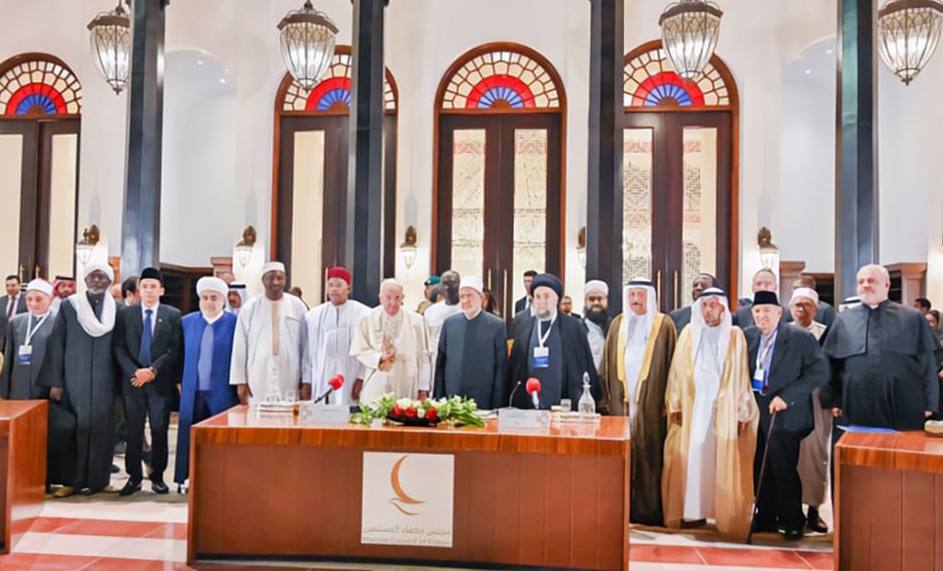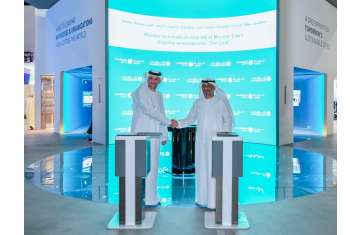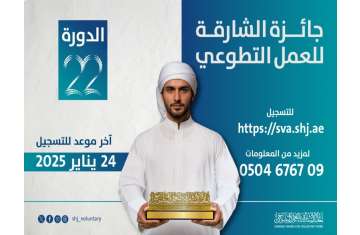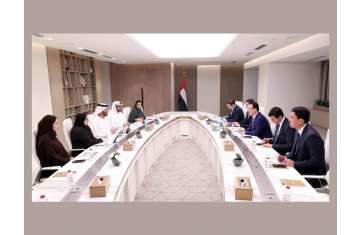Urgent
UAE President welcomes Egyptian President at start of working visit
 71 martyrs, dozens injured in Israeli airstrikes on Gaza
71 martyrs, dozens injured in Israeli airstrikes on Gaza
 Masdar to establish new headquarters at 'The Link' project
Masdar to establish new headquarters at 'The Link' project
 Mubadala’s ‘KELIX bio’ acquires ‘DiabTec’
Mubadala’s ‘KELIX bio’ acquires ‘DiabTec’
 Ministry of Finance meets with IMF Article IV consultation mission
Ministry of Finance meets with IMF Article IV consultation mission
 Global Council for Tolerance and Peace welcomes Gaza ceasefire agreement
Global Council for Tolerance and Peace welcomes Gaza ceasefire agreement
 Sharjah Award for Voluntary Work opens until January 24
Sharjah Award for Voluntary Work opens until January 24
 Solar and Clean Energy Conference opens in Abu Dhabi
Solar and Clean Energy Conference opens in Abu Dhabi

 71 martyrs, dozens injured in Israeli airstrikes on Gaza
71 martyrs, dozens injured in Israeli airstrikes on Gaza
 Masdar to establish new headquarters at 'The Link' project
Masdar to establish new headquarters at 'The Link' project
 Mubadala’s ‘KELIX bio’ acquires ‘DiabTec’
Mubadala’s ‘KELIX bio’ acquires ‘DiabTec’
 Ministry of Finance meets with IMF Article IV consultation mission
Ministry of Finance meets with IMF Article IV consultation mission
 Global Council for Tolerance and Peace welcomes Gaza ceasefire agreement
Global Council for Tolerance and Peace welcomes Gaza ceasefire agreement
 Sharjah Award for Voluntary Work opens until January 24
Sharjah Award for Voluntary Work opens until January 24
 Solar and Clean Energy Conference opens in Abu Dhabi
Solar and Clean Energy Conference opens in Abu Dhabi











Comments